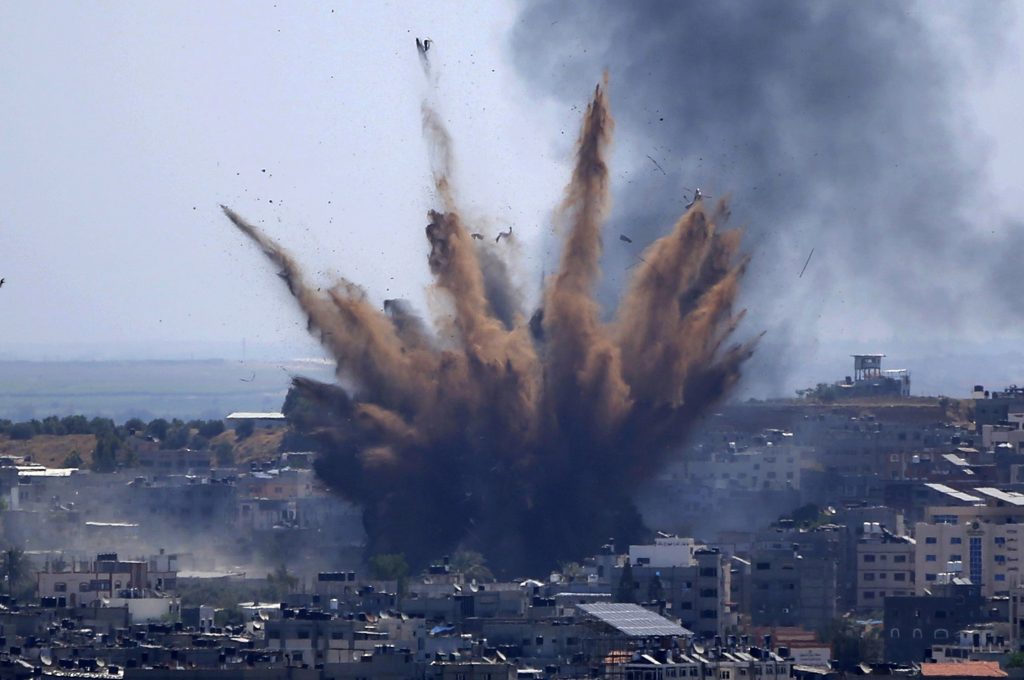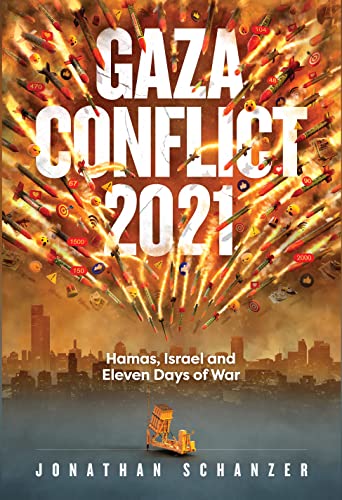Australia/Israel Review
Biblio File: A War Revisited
Nov 24, 2021 | Omri Nahmias

 Gaza Conflict 2021: Hamas, Israel, and the Eleven Days War
Gaza Conflict 2021: Hamas, Israel, and the Eleven Days War
Jonathan Schanzer
FDD Press, 2021, 284 pp., A$46.20 hardcover, A$25.53 ebook
When Jonathan Schanzer, senior vice president of the Foundation for Defense of Democracies, watched “Operation Guardian of the Walls”, the May 2021 war between Hamas and other Gaza-based militias and the IDF, unfolding on TV, he decided to write a book about it.
“I watched the war in May, and for the first time since the Second Intifada, when I lived in Israel, I was able to watch almost the entire war in Hebrew,” Schanzer said in an interview with the Jerusalem Post. “I also watched it in Arabic, and, of course, I watched it in English.”
“It almost felt like the US media and the Israeli media were covering two different wars,” he said. “The gap was so big, in terms of what both sides chose to cover, that I felt like it was time to write a book.”
Gaza Conflict 2021: Hamas, Israel, and the Eleven Days War was published in-house by FDD Press.
“When the war was over, I took a few days off, and then I wrote the first draft in eight days,” Schanzer said, adding that he then travelled to Israel to interview Israeli officials, lawmakers and IDF officers, including the Officer Commanding Southern Command Maj.-Gen. Eliezer Toledano.
“I initially wrote the book in chronological order, but in the end, I decided to jump back and forth between the recent war and the history of Hamas dating back to the 1980s,” Schanzer said. “The goal was to help the reader see how the present and past are inextricably linked.”
“The American media focused almost entirely on Sheikh Jarrah [Ed: a property dispute in a Jerusalem neighbourhood] being the cause of the war, and remarkably to me, there was no coverage at all of the cancelled Palestinian elections and the fact that this was something that made Hamas furious, and they were looking to make themselves part of the political conversation again,” he said. “I would say that that has as much, if not more, to do with the outbreak of the conflict than Sheikh Jarrah, which, by the way, is still going on today and clearly is not the cause of additional wars.
“As I note in the book, at the end of the day, when you point to a single cause of the conflict, you’re usually going to be wrong.
“Instead of looking at a real-estate dispute in Sheikh Jarrah, maybe we [should] look at a few other things that also contributed to it, which were not part of the discussion,” such as the role of Iran in backing Hamas, he said.
The last war was different from previous conflicts, Schanzer noted.
“It’s a different conflict now,” he said. “It’s less Arab-Israeli; it’s even less Palestinian-Israeli. This is a Gaza-Israeli conflict or Iran-Israeli conflict, and the nuance there, I thought, was important for me as I watched. I just felt like there were things that went unsaid here in the US that may have been more obvious to others watching abroad.”
The situation might escalate again, according to Schanzer.
“The Israeli officials I spoke to in June suggested that war could easily break out again soon,” he said. “Between balloon bombs and occasional rockets, another conflagration is entirely possible. I think the determining factor here is Israel, which usually doesn’t respond to provocations until there is a significant ‘target bank’ collected.”
Schanzer’s interview with the Jerusalem Post took place the week Egypt’s foreign minister was in Washington to meet Secretary of State Antony Blinken.
“Egypt is likely to continue to play the role of mediator in the short and medium term,” Schanzer said, “but its success will depend on the support that it gets from the United States, and the progressive Left [in the US] continues to put Egypt in a corner. I am concerned about this.”
© Jerusalem Post (www.jpost.com), reprinted by permission, all rights reserved.
Tags: Gaza, Hamas, Israel, Palestinians






